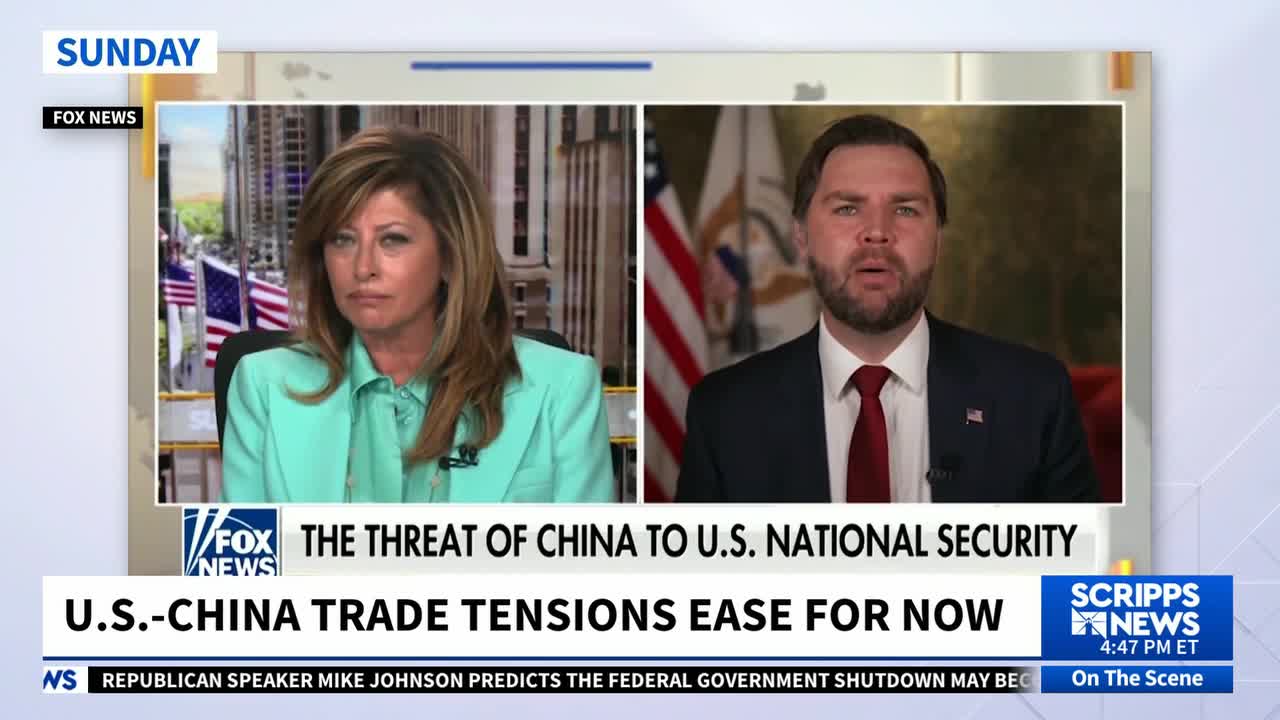The Trump administration appears to be trying to calm markets — and investors seem to be responding — after Friday’s sharp sell-off and a tense weekend between Washington, D.C., and Beijing.
Stocks, oil and crypto were all back in the green on Monday after nosediving on Friday. The sell-off was triggered by the threat of steep new tariffs on China in response to China's announcement of export controls on rare earths. President Donald Trump also had threatened to pull out of a future meeting with Chinese President Xi Jinping.
Over the weekend, the president tried a different tone on Truth Social, writing: "Don't worry about China, it will all be fine! Highly respected President Xi just had a bad moment. He doesn't want Depression for his country, and neither do I. The U.S.A. wants to help China, not hurt it."
That softer message marks a notable pivot from Friday's fiery rhetoric and seems to have helped soothe Wall Street nerves. Meanwhile, Vice President JD Vance was more direct about the need for China to decide on how it wants to negotiate with the U.S.
"It's going to be a delicate dance and a lot of it is going to depend on how the Chinese respond," Vance said in an appearance on Fox News Sunday. "If they respond in a highly aggressive manner, I guarantee you the president of the United States has far more cards than the People's Republic of China. If, however, they're willing to be reasonable, then Donald Trump is always willing to be a reasonable negotiator.
In a statement posted online, the Chinese Commerce Ministry said, "China's stance is consistent. We do not want a tariff war but we are not afraid of one."
RELATED STORY | Trump vows new 100% tariffs on Chinese goods amid rare earth export clash
Tensions are unfolding as China moves to tighten exports of rare earth materials — key ingredients in everything from electric vehicle motors to smartphones and U.S. defense systems. It’s a reminder that while the United States leads in innovation, China still controls the vast majority of the world’s rare earth processing.
Some in corporate America are now angling to get involved; JPMorgan Chase announced a $10 billion investment Monday in U.S. companies focused on defense and aerospace, cutting-edge tech like AI and quantum computing, and energy technologies, including batteries and advanced manufacturing.
CEO Jamie Dimon wrote in a statement that it's become "painfully clear the U.S. has allowed itself to become too reliant on unreliable sources of critical minerals and manufacturing — all essential for our national security."
Markets seem to be responding more to tone than policy at the moment, with traders betting that tensions could ease — at least for now — as long as the president signals openness to dialogue.
Presidents Trump and Xi are set to meet in South Korea in late October. The two countries remain in talks to reach a trade deal before their truce, which reduced tit-for-tat tariffs from both sides, expires on November 1.




